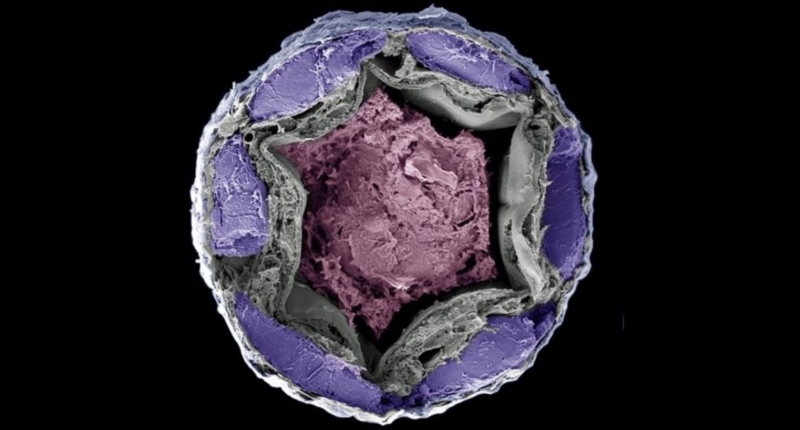Beetles have a unique way of staying hydrated by extracting moisture from the air through their rectums, converting it into fluid and absorbing it into their bodies. This method of hydration is especially beneficial in arid environments. A recent study found that beetles can go through their entire life cycle without drinking liquid water since their modified rectum and closely attached kidneys extract water from their food and the air around them. The researchers examined poop samples from beetles such as grain weevils and red flour beetles, observing that their excrement was completely dry and lacked any trace of water. They discovered that a gene called NHA1 is responsible for the unique hydration process, and that leptophragmata cells function by pumping salts into the kidneys, allowing them to harvest water from moist air through their rectums. This is essential to the beetle’s survival.
Beetles Hydration Method: Sipping Water Through Their Butts
Beetles have an unconventional way of staying hydrated, as they suck water into their butts instead of drinking through their mouths. A recent study published in the Proceedings of the National Academy of Sciences revealed that the insects can extract moisture from the air through their rectums, convert it into fluid, and absorb it into their bodies.
This method of quenching their thirst is especially beneficial in arid environments where liquid water is scarce. The researchers discovered that beetles can go their entire lives without drinking water through their mouths, thanks to their modified rectum and closely attached kidneys, which extract water from their food and the air around them.
The scientists examined poop samples from grain weevils and red flour beetles, observing that their excrement was completely dry and lacked any trace of water. This trait is attributed to a gene called NHA1, which is expressed 60 times more in the beetle’s rectum than in other parts of its body. This expression creates a group of cells called leptophragmata cells that are responsible for water absorption through the rear end.
Kenneth Veland Halberg, an associate professor in the Department of Biology at the University of Copenhagen and study co-author, explained that the multi-organ system of the insects is highly specialized in extracting water from their food and the air around them. As a result, beetles can go through their entire life cycle without drinking liquid water.
This hydration method is fascinating and unusual, demonstrating how insects can survive in harsh environments. The researchers’ findings shed light on the intricate and complex nature of the animal world, providing insight into their incredible survival strategies.
Related: After being swallowed alive, water beetle stages ‘backdoor’ escape from frog’s gut.
How Beetles Harvest Water Through Their Rectums
Researchers have discovered that beetles can extract moisture from the air through their rectums and convert it into fluid, which is then absorbed into their bodies. The study found that leptophragmata cells, situated between the beetle’s kidneys and its circulatory system, function by pumping salts into the kidneys, allowing them to harvest water from moist air through their rectums. This process is essential to the beetle’s survival, as they can go through their entire life cycle without drinking liquid water. The researchers discovered that a gene called NHA1 is responsible for this unique process.
Don’t miss interesting posts on Famousbio










